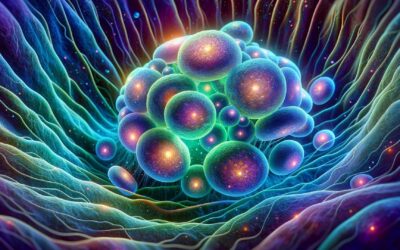- Introduction
- Water, an Uncommon Common Liquid
- Introduction:
- Uncommon Properties of Water:
- Conclusion:
- Plus Discussions
- Q — What is water and why is it essential for life on Earth?
- Q — What is surface tension, and how does it affect small insects and spiders?
- Q — How does water’s ability to dissolve substances impact living organisms?
- Q — What is specific heat capacity, and how does water’s specific heat capacity make it useful as a coolant?
- Q — What is anomalous expansion, and how does it affect frozen water?
- Q — What is the water cycle, and how does water’s high heat of vaporization play a crucial role in it?
- Q — How can understanding water’s unique properties help us appreciate its importance?
- Q — How does water’s high surface tension impact the environment beyond the ability for insects to walk on water?
- Q — Can you provide an example of how water’s ability to dissolve various substances is important in daily life?
- Q — How does water’s high specific heat capacity make it a stable environment for aquatic life?
- Q — How does water’s anomalous expansion upon freezing impact the cycling of nutrients in cold regions?
- Q — Can you explain how water’s high heat of vaporization impacts the climate?
- Q — How does water’s unique combination of properties make it a vital resource for industry?
Introduction
Learn about the unique characteristics of water, including its high surface tension, ability to dissolve various substances, high specific heat capacity, anomalous expansion upon freezing, and high heat of vaporization. Discover how these properties impact our daily lives and the environment.
Water, an Uncommon Common Liquid
Introduction:
Water is one of the most essential substances for life on Earth. It covers over 70% of the planet’s surface and is found in various forms – from oceans, rivers, and lakes to underground aquifers and frozen glaciers. Despite being such a ubiquitous and seemingly simple substance, water has several unique properties that make it stand out among other liquids. In this blog post, we will explore some of the uncommon characteristics of water and how they impact our daily lives.
Uncommon Properties of Water:
High Surface Tension
One of the most notable properties of water is its high surface tension. This means that water molecules are strongly attracted to each other, which creates a “skin” or “film” on the surface of the water. This property is why small insects and spiders can walk on water without sinking, and why water droplets can form perfect spheres on certain surfaces.
This characteristic also plays a crucial role in plant growth, as water can move against gravity in narrow spaces, such as the tiny tubes in plant stems. Additionally, it is why our bodies can transport blood and other fluids through narrow vessels without them collapsing.
Ability to Dissolve Various Substances
Another uncommon property of water is its ability to dissolve a wide range of substances. This is due to water’s polarity, which means that it has both positively and negatively charged ends. This makes it a versatile solvent that can dissolve both ionic compounds (like salt) and polar molecules (like sugars).
This characteristic is essential for life as we know it. Without water’s ability to dissolve and transport nutrients and waste products, living organisms would not be able to function properly.
High Specific Heat Capacity
Water has a relatively high specific heat capacity, which means that it takes a significant amount of energy to raise its temperature. This is why water is often used as a coolant in various industrial processes, as it can absorb large amounts of heat without changing its temperature drastically.
This property is also why water is a stable environment for aquatic life, as it helps regulate water temperatures and prevent rapid temperature changes. Additionally, it is why coastal areas experience milder temperatures than inland areas, as the large bodies of water help regulate the climate.
Anomalous Expansion upon Freezing
Most substances contract upon cooling, but water is an exception to this rule. When water freezes, it expands by about 9%, which is why ice floats on top of liquid water. This property is also why frozen pipes can burst in the winter, as the expanding ice can exert enough pressure to crack the pipes.
This characteristic has several other implications, such as the formation of glaciers and the cycling of nutrients in cold regions. It also provides a unique environment for aquatic life, as the layer of ice on top of frozen lakes and ponds can provide insulation and protection.
High Heat of Vaporization
Water has a high heat of vaporization, which means that it takes a significant amount of energy to convert liquid water into water vapor. This property is why sweating cools our bodies down, as the water on our skin absorbs heat and evaporates into the air.
This characteristic also plays a crucial role in the water cycle, as water vapor is released into the atmosphere through evaporation and transpiration from plants. This vapor then condenses into clouds and falls back to the Earth’s surface as precipitation.
Conclusion:
Water is undoubtedly a remarkable substance that plays a crucial role in sustaining life on Earth. Its uncommon properties have several implications for the environment, industry, and daily life. By understanding these unique characteristics, we can appreciate the true complexity and importance of this seemingly simple liquid.
Plus Discussions
Q — What is water and why is it essential for life on Earth?
Water is a substance that covers over 70% of the planet’s surface and is found in various forms such as oceans, rivers, and lakes. It’s essential for life on Earth because it plays a crucial role in sustaining living organisms, from plant growth to the transportation of nutrients and waste products in our bodies.
Q — What is surface tension, and how does it affect small insects and spiders?
Surface tension is one of the most notable properties of water, which means that water molecules are strongly attracted to each other, creating a “skin” or “film” on the surface of the water. This characteristic allows small insects and spiders to walk on water without sinking.
Q — How does water’s ability to dissolve substances impact living organisms?
Water’s ability to dissolve various substances is essential for life as we know it. Without water’s ability to dissolve and transport nutrients and waste products, living organisms could not function properly.
Q — What is specific heat capacity, and how does water’s specific heat capacity make it useful as a coolant?
Specific heat capacity is the amount of energy needed to raise the temperature of a substance by one degree Celsius. Water has a relatively high specific heat capacity, which means that it takes a significant amount of energy to raise its temperature. This characteristic makes water useful as a coolant in various industrial processes, as it can absorb large amounts of heat without changing its temperature drastically.
Q — What is anomalous expansion, and how does it affect frozen water?
Anomalous expansion is a phenomenon where most substances contract upon cooling, but water expands by about 9% when it freezes. This characteristic is why ice floats on top of liquid water and why frozen pipes can burst in the winter, as the expanding ice can exert enough pressure to crack the pipes.
Q — What is the water cycle, and how does water’s high heat of vaporization play a crucial role in it?
The water cycle is a continuous process where water evaporates from the Earth’s surface and transpires from plants, forms clouds, and falls back to the Earth’s surface as precipitation. Water’s high heat of vaporization plays a crucial role in the water cycle, as water vapor is released into the atmosphere through evaporation and transpiration from plants. This vapor then condenses into clouds and falls back to the Earth’s surface as precipitation.
Q — How can understanding water’s unique properties help us appreciate its importance?
By understanding water’s unique properties, we can appreciate the true complexity and importance of this seemingly simple liquid. Water’s uncommon properties have several implications for the environment, industry, and daily life, which highlights its crucial role in sustaining life on Earth.
Q — How does water’s high surface tension impact the environment beyond the ability for insects to walk on water?
Water’s high surface tension also plays a crucial role in plant growth, as water can move against gravity in narrow spaces like the tiny tubes in plant stems. Additionally, it’s why our bodies can transport blood and other fluids through narrow vessels without them collapsing.
Q — Can you provide an example of how water’s ability to dissolve various substances is important in daily life?
One example is how water is used to dissolve and transport nutrients in our bodies. When we eat food, our bodies break it down into nutrients that can be dissolved in water and transported to different parts of the body.
Q — How does water’s high specific heat capacity make it a stable environment for aquatic life?
Water’s high specific heat capacity helps regulate water temperatures and prevent rapid temperature changes, which makes it a stable environment for aquatic life. This is why bodies of water often experience milder temperatures than inland areas, as the large bodies of water help regulate the climate.
Q — How does water’s anomalous expansion upon freezing impact the cycling of nutrients in cold regions?
Water’s anomalous expansion upon freezing is what causes nutrients to cycle in cold regions. When water freezes, it expands and breaks down rocks into smaller pieces, releasing nutrients that have been trapped inside. These nutrients are then available for plants and other organisms to use.
Q — Can you explain how water’s high heat of vaporization impacts the climate?
Water’s high heat of vaporization plays a crucial role in regulating the Earth’s temperature. As water evaporates from the Earth’s surface and transpires from plants, it cools the surrounding air. This can lead to the formation of clouds, which can reflect sunlight and further cool the Earth’s surface.
Q — How does water’s unique combination of properties make it a vital resource for industry?
Water’s unique combination of properties, such as its high specific heat capacity and ability to dissolve substances, make it a vital resource for industries like manufacturing and agriculture. Water is used as a coolant, a solvent for chemical reactions, and a means of transporting materials.












0 Comments